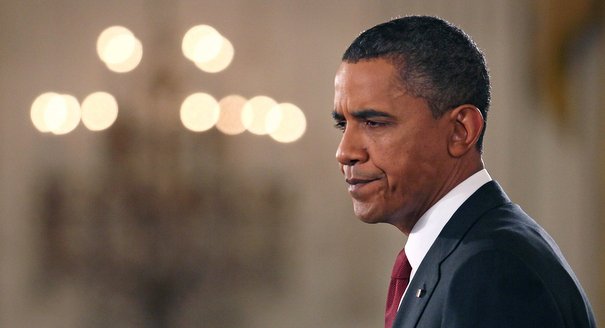Half a year into President Barack Obama’s last four, it is still too soon to predict what his foreign policy legacy will be.
In Washington, a seemingly unending series of fake scandals (Benghazi), leaks (most recently the Snowden revelations), and diversions (sexual abuse in the military) has devoured senior officials’ time. Meanwhile, round two of the budget and debt-ceiling crisis looms largely unattended.
The National Security Council is about to change hands, and critical subcabinet appointments, especially at the State Department, have not been made.
What was touted in January as a foreign policy team of seasoned former senators—Obama, Secretary of State John Kerry, and Defense Secretary Chuck Hagel—who would see eye to eye by virtue of similar backgrounds and temperaments, is no longer so clear. This White House has tightly held the reins of foreign policy, so the replacement of National Security Adviser Tom Donilon, a cautious, behind-the-scenes realpolitik player, by the far more activist “liberal hawk” Susan Rice, signals real change. Samantha Power as ambassador to the UN will reinforce Rice on most issues.
What matters in the end is the presidential thinking that cannot be deduced from these appointments. Two (Kerry and Hagel) point in one direction and two (Rice and Power) suggest quite another.
It is clear that, for his part, Kerry does not intend to waste a minute of what is likely to be his last political post. Whereas former secretary of state Hillary Clinton avoided the thorny issues with a future presidential run in mind, Kerry is obviously determined to spend every last penny of the political capital he has amassed over a long career.
Not waiting for the lengthy interagency studies that usually launch a new U.S. administration, Kerry has begun by making policy on the road. Only a few months into his tenure, he has visited 26 countries—several of them multiple times—diving into every one of the United States’ toughest challenges, even the long-stalled Arab-Israeli conflict.
His determination to make this job the apex of his career, and his confidence in his own ability to carry out one-man diplomacy, are obvious in the scope and frenetic pace of his travels. If this continues, the minor frictions that have arisen with the White House as a result are likely to grow.
Beyond personality and process, uncontrollable events shape policy. From across a huge planet, issues in two neighboring countries will determine what the history books will remember: the administration’s choices regarding the raging civil war in Syria, and how it handles the nuclear issue in Iran.
For almost two years, Obama has been commendably determined not to be drawn into the Syrian tragedy without a path toward some kind of stable political outcome. At the same time, he has blurred his policy with rhetoric that contradicts his actions and confuses everyone outside his inner circle—and perhaps within it.
To say that President Bashar al-Assad’s continuance in office is “unacceptable” and to draw a redline at the use of chemical weapons (though conventional ones have caused vastly more suffering and death) raises expectations he chooses not to meet. In the past few weeks, he has compounded the confusion by suggesting that the United States will arm the opposition while offering far too little help to make a strategic difference.
Meanwhile, Hassan Rowhani’s completely unexpected victory in Iran’s presidential election has turned the nuclear standoff between Tehran and the West into an opportunity for a positive outcome. Rowhani has everything he needs to reach a negotiated solution to this crisis. He has been close to the Supreme Leader for years and, for now at least, enjoys his trust. He has a popular mandate, having campaigned on the need for a negotiated settlement and won a huge victory—with more than half of the vote in a six-man race.
Rowhani is also a pragmatist. He speaks perfect English. And he knows the technicalities of the nuclear issue in detail, having previously served as Iran’s chief negotiator. He will face stiff opposition from the Revolutionary Guard and perhaps from the Supreme Leader himself, but he represents a legitimate opening to avoid a war that would be hideously costly for both sides.
To seize that opportunity, President Obama will first have to end the waffling within the government over whether an acceptable deal can involve uranium enrichment. There is simply no possibility of a deal without it. Those who still think otherwise are voting either for a nuclear Iran or for war. Negotiations may well fail, but this is the sine qua non for a serious try.
Ultimately, the hardest step may be persuading Congress that sanctions can be effective only if one is as prepared to lift them as to impose them. Unfortunately, Congress has gotten rather drunk on sanctioning Iran at what may turn out to be the worst time.
If Obama hopes for public and international support on Syria and Iran, he urgently needs to clarify, and above all to share, his thinking on both and the reasons for it. Otherwise, he is likely to be pushed to exactly where he doesn’t want to go.





.jpg)
